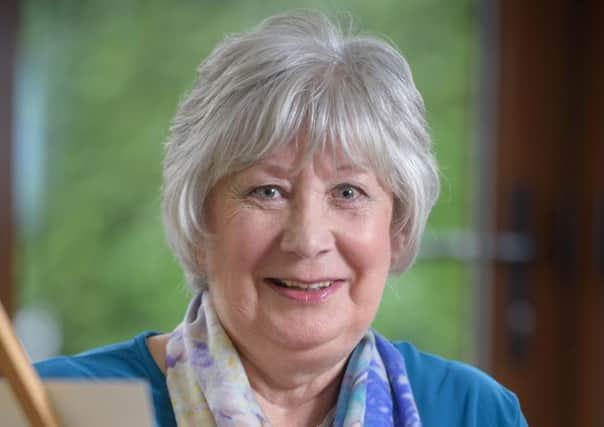How cataract surgery cured my insomnia


Life was becoming increasingly difficult for Margaret Hibbert as she battled with insomnia, night after night for many years.
The 70 year old grandmother from Wakefield, was not only exhausted, but also found that her vision was deteriorating due to cataracts in both eyes, which were first diagnosed around eight years ago – coinciding with the start of her sleepless nights.
Advertisement
Hide AdAdvertisement
Hide AdMargaret’s insomnia had got so bad that she was just about to give in to medication.
“I was getting so desperate that I reluctantly went to my GP and received a prescription for amitriptyline. However, I’m really not keen on tablets of any kind, so I never started taking them. They are still all in their box,” explains Margarat, who has two children and three grandchildren.
Margaret has many hobbies that rely on close-up vision, such as sewing and painting watercolours, so she decided to fix her eyes once and for all. But little did she know she was about to fix her insomnia too.
She visited ophthalmic surgeon James Ball at Optegra Eye Hospital Yorkshire who confirmed at her initial consultation that the cataract could be remove. In fact she was suitable for cataract refractive surgery, which meant that she could have multifocal lenses to improve her vision and provide complete independence from glasses.
Advertisement
Hide AdAdvertisement
Hide Ad“But then the most marvelous thing happened. The night after my cataract surgery I had my first full night of sleep in many, many years! And have done every night since,” says Margaret.
“A cataract is a clouding of the lens in the eye and as well as distorting vision and making everything seem hazy, it can also prevent blue light from getting through,” explains Mr Ball. “This blue light stimulates the area of the brain which sets your body clock.
“There is growing evidence that without this blue light input the body clock isn’t reset by light during the day and this can contribute to poor sleep patterns.”
Margaret’s husband joked with Mr Ball at their follow-up appointment at Optegra that he thought the cataract surgery had solved the insomnia.
And was surprised to hear this is in fact the truth.
Advertisement
Hide AdAdvertisement
Hide Ad“Mrs Hibbert never started taking the sleeping tablets so the only thing which has changed is removing her cataracts,” says Mr Ball.
“She had reached a point where she would be able to fall asleep at a normal time but then would wake up anything from five minutes to an hour later. She would then be unable to fall asleep again and would stay up reading.
“Since the first day after the surgery she has returned to a normal sleeping pattern.
“Although the science behind this is proven it isn’t well known that cataracts can not only decrease your vision but also impair your sleep.
Advertisement
Hide AdAdvertisement
Hide Ad“I am so pleased that my patient is now not only enjoying excellent vision but is also feeling much healthier and well-rested.”
Seeing and sleeping happy Margaret is delighted with the outcome.
“My vision is so much better now, I can mix water colours properly and see true colours at last. I’ve discovered I have clothes in my wardrobe, which for years I have thought are aubergine, and in fact they are bright purple. I can thread the needle to make my granddaughter the princess outfits she loves.
“And best of all, I feel so rested and so well. Those years of feeling drained day in and day out are finally leaving me. The impact of not sleeping was terrible and I was afraid to nap in the day as I thought it would make the following night even worse. I was getting quite desperate but hate taking medication and so those sleeping tablets would have been a real last resort.
Advertisement
Hide AdAdvertisement
Hide Ad“I am fascinated that my initial mild insomnia all those years ago coincided with being told I had early stages of cataracts. And as my cataracts have become worse my insomnia has too – I was often having just a couple of hours sleep a night. To think the cataracts have gone and so has the insomnia is wonderful and I hope by letting people know I may be able to help some other people in the same situation I was in.
“I feel I have a real boost of energy and ability now. And I am sure there may be many people on sleep medication who do not need to be – as cataracts may be the cause of their sleep problems too.”
Margaret has lived in Wakefield for 39 years and is a housewife and PA to her husband’s company.